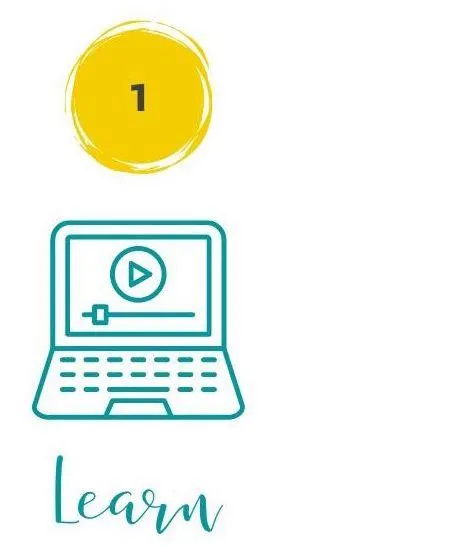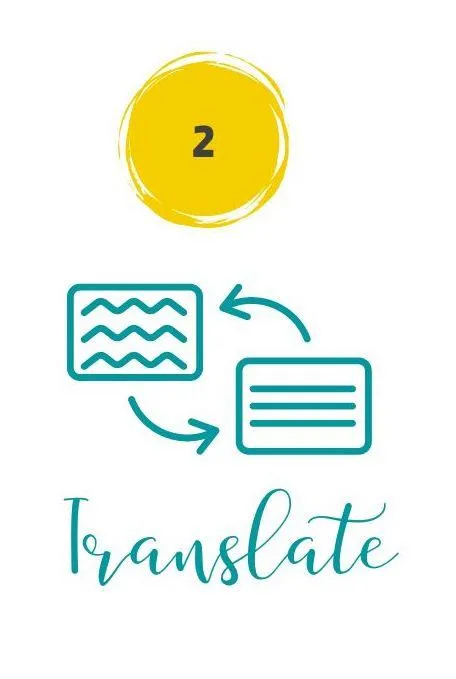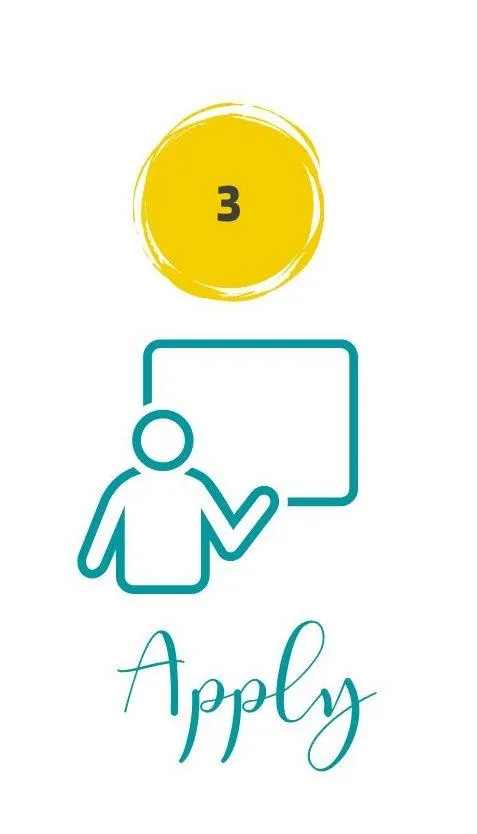Do you find yourself wondering....
"How do I help my clients stop obsessing
about their weight?"
With the Health Not Weight program, you'll be able to help clients stop dieting, stop blaming themselves and focus on evidence-based strategies, health and quality-of-life goals instead of weight numbers
THE PROGRAM JUST FILLED UP
Sorry we missed you! Sign up for the waitlist to get updates on the next group.
Do your clients...
Blame themselves for gaining weight?
Practice harmful behaviours to control their weight?
Constantly focus on weight-centric goals or outcomes?
Ask you questions about the new 'weight-loss' medications?
Are you...
Struggling to keep up-to-date with weight science?
Looking for ways to teach weight science to clients?
Trying to juggle between a weight-inclusive approach and supporting clients wanting weight loss?
In need of a step-by-step process to help clients focus on health outcomes?
Understanding weight science can help
When clients understand "the WHY" behind weight science, they stop blaming themselves and can focus on health outcomes and behaviours that move beyond weight-specific goals.
The Health Not Weight program is designed specifically for healthcare providers struggling to help clients focus on health outcomes instead of weight-loss alone.
Learn up-to-date information about weight science, get resources to use in practice and tools to support your clients focus on health while using evidence-based care.



The Health Not Weight Program
is for health care providers ONLY
At this time, the Health Not Weight program is only available for healthcare providers.
Not a Health Care Provider?
If you're NOT a health care provider but you're interested in this topic or type of program, please sign up for updates on future courses or webinars for the public.
Health Not Weight Program
Includes:
13-week program
Weekly group lessons
Live Q&A and coaching sessions
Watch replays anytime
Get counselling strategies
Assessment resources
Tools to use in your practice
Case studies
Group discussions
Private community group
Access to resource library
Access to all recorded sessions
6-month access
3 monthly support calls after program ends
Certificate of completion
Discounts on monthly membership
This program is for you if....
You have questions about hormones related to appetite or body weight changes
You are unable to explain pathways in the brain or body that affect appetite or body weight changes
You have clients that blame themselves for their weight or eating habits
You need some support with how to help clients frustrated with their weight
You can't answer some or all of these questions:
Which hormone in the body is responsible for feeling full?
GLP-1 (Glucagon-like peptide 1)
Did you know that some people's GLP-1 levels are low or not functioning as well as they could (similar to insulin levels)?
The Health Not Weight program will help you teach this to clients.
What happens to the gut and brain when someone loses weight from....dieting, pharmacotherapy or metabolic/bariatric surgery?
We'll explore the evidence (from both a physiological and critical lens) and provide you tools and resources to use with your next client
What genetic conditions cause insatiable hunger?
Bardet-Beidl syndrome (BBS)
POMC deficiency
LEPR deficiency
Melanocortin-4-receptor deficiency
Could you explain these to clients? or identify signs/symptoms?
What questions should you consider if your client experiences hunger all the time? (or no hunger)
Is there a history of weight cycling?
Any history of trauma, abuse, neglect or food/nutrient deprivation?
What about stress levels? What type of stress? how long? how severe?
How would your client describe their hunger? Does anything reduce or improve it?
The Health Not Weight program provides you with questions to explore with clients (and the evidence behind 'the why') plus assessment tools you can use right away.
Health Not Weight Program
Outline

Module 1: Weight Bias & Stigma:
Why assessing bias and stigma can improve client-provider outcomes
How to assess your own bias/stigma about weight or working with clients of higher body weights.
How to assess clients internalized weight bias (negative self-thoughts)
Which resources to use with clients and/or colleagues to help reduce weight bias/stigma
Module 2: Weight Science - What's New:
Why knowing about weight science is going to help your practice.
How to think about factors affecting someone's appetite or weight.
In-depth review of updated evidence on topics that impact eating/food intake:
Energy expenditure including metabolic adaptation (body weight set-point)
Neurohormonal pathways affecting appetite
Gut-brain axis (Central and peripheral nervous system effect on food intake)
Melonocortin-4 receptor (MC4R) pathway
Mesolimbic reward system
Gastrointestinal tract (gut hormones - GLP-1, GIP, CCK, PPY, Ghrelin)
Gastrointestinal microbiota
Adipose tissue/metabolism (leptin)
Genetic conditions that affect appetite
Bardet-Beidl syndrome (BBS), Alstrom syndrome
POMC, LEPR deficiency
Other deficiencies (PCSK1, SRC1, SH2B1)
What is allostasis; how does stress affect it and how is this related to appetite/weight?
What to look for, questions to ask and/or tests/referrals to consider
Module 3: Weight Science - Impact of Weight Changes:
What happens to the body if/when it gains or loses weight (what happens to the brain and gut)
What happens if someone's weight changes (gain and/or loss) from:
"Dieting" (energy restriction/expenditure)
Medications
Surgery
Role of behaviour and/or psychological therapy

Module 4: Assessing Health Not Weight:
Various strategies to assess patients/clients expectations, values and barriers
When to use a self-reflection tool (called the Health Not Weight Iceberg Tool) with clients/patients fixated on weight loss or unrealistic weight expectations.
How to use the HNW Iceberg Tool in-person, virtually or on the telephone with clients/patients
Module 5: Reframing Health Not Weight:
How to reframe expectations, reduce shame and blame and rebuild client-focused values
Knowing when and how to use a weight storyboard with clients (using the Health Not Weight Weight Storyboard Tool)
How to calculate weight trajectories
How to explain weight trajectory to clients
How to interpret findings, counsel patients/clients and develop client-centred plans that bridge together expectations, values and barriers.

Module 6: Turn knowledge into practice
Put together all the information in the LEARN and TRANSLATE sections into practice
What to include in your documentation/chart notes
Join live sessions (or watch recorded sessions) where we will practice examples, case studies, and help you apply the course content into group teaching and/or one-to-one appointments.
BONUS: bring your own cases or specific examples to walk through it together
PLUS
BONUS 1: Health Not Weight Provider Guide
Use this step-by-step guide in clinical practice to fine-tune your individual counselling skills
BONUS 2: Health Not Weight Iceberg Tool
Use this tool to help you and your clients visualize barriers, values and goals
BONUS 3: Health Not Weight Storyboard Tool
This step-by-step process includes calculations and scripts to support your clients that fear weight gain, have self-blame, or unrealistic weight-related goals, etc. Using this tool in combination with the HNW Iceberg tool can help nurture a positive relationship with weight, health behaviours and setting realistic expectations
What to do next:
STEP 1
Sign up to be added to the waitlist
STEP 2
You will receive a confirmation email that you are ON the waitlist (check your spam or trash)
STEP 3
Check your emails for updates and START DATES for the Health Not Weight Program
[Planned for Winter 2025]
Is now not a good time for a program?
Join the monthly membership meetings to stay up to date
Health care providers can join the monthly membership
for LIVE monthly Q&A sessions
(We meet the 4th Tuesday of every month from 12:30-1:30 pm EST)
Why I Created the Health Not Weight Program

I struggled for years trying to support clients that were obsessed with losing weight, blaming themselves for not eating 'the-right-foods', and constantly looking for diets.
I found that when clients understood 'the WHY' behind weight science, they stopped blaming themselves and could focus on health outcomes and behaviours that moved beyond weight-specific goals.
YOU may not have the time, energy or interest to review all the science and up-to-date information that has changed how we understand and view weight or health, so that's why I created the "Health not Weight" program!
A program that not only provides you with the information about weight science, but HOW to use it in one-to-one or group sessions with your clients. I'll walk you through all the evidence, controversies, resources and most importantly, step-by-step tools you can use with clients to support their journey and goals (that focus on "Health not Weight"!!)
FAQs
How much is the Health Not Weight Program?
For a limited time, the cost of the Health Not Weight program is $899 CAD.
For group rates or payment options, please email [email protected]
I also offer live 2-part webinars for Family Health Teams or Primary Care Networks. Contact me for pricing information.
How long do I have access to the program for?
6 months access! You'll have a secure sign-in to the program portal to access weekly content, Q&As, recorded sessions, a resource library, cheat sheets, handouts, assessment tools, and more. Plus, providers wanting more support or access to all the resources can join our membership program after completing the Health Not Weight Program.
How much time should I set aside for this program?
That totally depends on how much you want to geek-out! I'm a proud geek! Once I started learning about weight science and the interplay between appetite hormones, areas of the brain that control food/eating behaviours and all the external factors that affect why and how we eat (including the harmful effects of dieting and weight stigma), I was hooked. BUT most people just set aside 1-2 hours per week!
How often do you run the HNW Program?
Usually we have 2 cohorts per year; one in the winter (January/February start) and one in the fall (September/October start). If the waitlist is too long, then a spring group (May start) is added but that's a difficult time of year for most folks. Email me if you have special requests or any questions ([email protected])
Got More Questions?
Email: [email protected]
